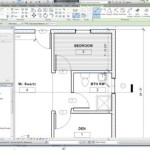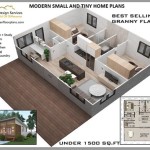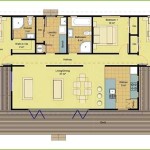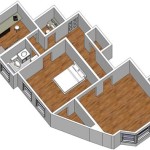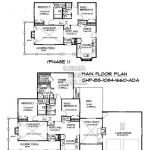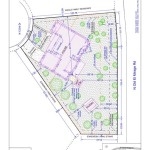Create a Home Floor Plan: Essential Aspects
Creating a home floor plan is a crucial step in the design and construction process. It serves as a blueprint for organizing spaces, optimizing functionality, and ensuring a comfortable and aesthetically pleasing living environment. Whether you are building a new home or renovating an existing one, a well-conceived floor plan lays the foundation for a successful project.
Space Planning and Zoning
The first step in creating a floor plan is to determine the spaces you need and how they will function. Start by identifying the essential areas: bedrooms, bathrooms, kitchen, living room, dining room, etc. Consider the size and shape of each space and how they relate to one another. Decide which areas need to be private and which can be more open and shared. Zoning helps in organizing the spaces into logical and functional groups, ensuring a smooth flow of movement.
Traffic Flow and Circulation
Traffic flow refers to the movement of people through the house. A well-designed floor plan should allow for easy and efficient movement between spaces. Consider where the main entry points are and how people will navigate from one room to another. Avoid creating bottlenecks or dead-end spaces. Ensure that there is adequate circulation space in high-traffic areas such as hallways and entryways.
Natural Lighting and Ventilation
Natural light and ventilation are essential for a healthy and comfortable living environment. When planning your floor plan, consider how you can maximize natural light intake. Position windows and skylights to bring in daylight into all the spaces. Ensure that there is proper ventilation by providing cross-ventilation through windows and doors to allow for air circulation.
Energy Efficiency and Sustainability
In today's eco-conscious world, energy efficiency and sustainability should be key considerations in floor plan design. Orient the house to take advantage of passive solar heating and natural cooling. Consider incorporating energy-efficient appliances and fixtures. Design the floor plan to minimize heat loss and maximize energy savings.
Flexibility and Adaptability
Life changes, and so do our needs for space. When creating a floor plan, consider how the house can adapt to future changes. Design spaces that can be easily reconfigured or repurposed as needs evolve. Avoid creating fixed partitions or walls that limit flexibility. Incorporate multi-purpose or convertible spaces that can accommodate different functions.
Aesthetics and Personalization
Beyond functionality, the floor plan should also reflect the aesthetic preferences and lifestyle of the homeowners. Consider the overall architectural style, color schemes, and interior design concepts. Personalize the spaces by incorporating features that make the home unique and inviting. It could be a cozy fireplace in the living room, a bay window in the bedroom, or a custom-designed kitchen.
Conclusion
Creating a home floor plan is an iterative process that involves careful planning, consideration of various factors, and attention to detail. By incorporating these essential aspects into your design, you can create a floor plan that optimizes functionality, maximizes comfort, and reflects your personal style. A well-conceived floor plan is the foundation for a home that is not only beautiful but also practical and enjoyable to live in.

Floor Plan Creator And Designer Free Easy App

Creating The Perfect Floor Plan Quarry View Building Group

Easy Home Building Floor Plan Cad Pro

House Plans How To Design Your Home Plan

House Plans How To Design Your Home Plan

Floor Plans Learn How To Design And Plan

20 Best Floor Plan Apps To Create Your Plans Foyr

Floor Plans Types Symbols Examples

Create Floor Plan

20 Best Floor Plan Apps To Create Your Plans Foyr
Related Posts

